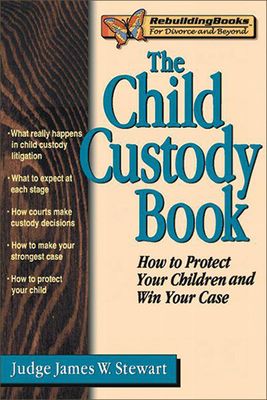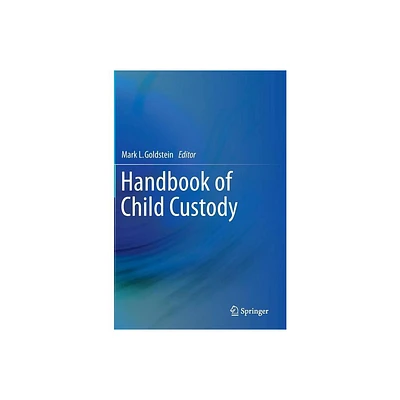Home
Psychological Testing Child Custody Evaluations
Loading Inventory...
Barnes and Noble
Psychological Testing Child Custody Evaluations
Current price: $46.95


Barnes and Noble
Psychological Testing Child Custody Evaluations
Current price: $46.95
Loading Inventory...
Size: Paperback
*Product Information may vary - to confirm product availability, pricing, and additional information please contact Barnes and Noble
A focused look at the usesand misusesof psychological tests in the context of child custodyThis book presents an advanced examination of psychological testing and usage in the child custody arena. It addresses test selection issues, provides insightful discussions of how to confront confirmatory biases and avoid the distortion of test findings, and presents clear instructions for the use of specific tests, including MMPI-2 and Rorschach, and a point/counterpoint discussion of the strengths and weaknesses of the Ackerman-Schoendorf Scales for Parent Evaluation of Custody (ASPECT).Psychological Testing in Child Custody Evaluations can be viewed as a work in three parts. The first section addresses theoretical and test usage issues, with chapters focusing on:
addressing test selection issues from legal and psychological perspectives
bias issues that interfere with the evaluator’s ability to collect and consider data objectively
a functional, comprehensive approach to the use of psychological tests in a child custody evaluationwith a conceptual framework for choosing assessment techniques to assess parenting competencies and other variables important in forming opinions about custodial placement and visitation access, and a practical example of how to present psychological test data in an advisory report to the court
a look at psychological testing from an attorney’s point of view
The second section of Psychological Testing in Child Custody Evaluations focuses on the MMPI-2 and the Rorschach Inkblot Test in the child custody context, investigating hypotheses that can be inferred from the MMPI-2 regarding parenting behaviors, and the use and value of the Rorschach. This section examines:
the foundation from which the MMPI-2 can generate expectations regarding five basic issuesthe quality of attachment and bonding, potential for antisocial behavior, temper control, alienation of affection, and chemical abuse and dependence
the range of variables that will generate useful hypotheses regarding parent-child interactions and family systems
the effects of the circumstances of litigation on score elevationsincluding recommended limits as to how much elevation can be dismissed as only contextual
the important differences between occasion validity and attribute validity
the clinical application of an objective interpretation system, including the courtroom credibility of explicit convergent validity
the use of the Rorschach in child custody evaluations
findings from a study using the Rorschach to address specific parenting variables
The third section of Psychological Testing in Child Custody Evaluations is a focused point-counterpoint discussion of ASPECT, between test creator Marc J. Ackerman and Mary Connell, President of the American Academy of Forensic Psychology. This book is essential reading for child custody evaluators, family law attorneys, and judges practicing in the family law arena, as well as educators and students in these fields.
addressing test selection issues from legal and psychological perspectives
bias issues that interfere with the evaluator’s ability to collect and consider data objectively
a functional, comprehensive approach to the use of psychological tests in a child custody evaluationwith a conceptual framework for choosing assessment techniques to assess parenting competencies and other variables important in forming opinions about custodial placement and visitation access, and a practical example of how to present psychological test data in an advisory report to the court
a look at psychological testing from an attorney’s point of view
The second section of Psychological Testing in Child Custody Evaluations focuses on the MMPI-2 and the Rorschach Inkblot Test in the child custody context, investigating hypotheses that can be inferred from the MMPI-2 regarding parenting behaviors, and the use and value of the Rorschach. This section examines:
the foundation from which the MMPI-2 can generate expectations regarding five basic issuesthe quality of attachment and bonding, potential for antisocial behavior, temper control, alienation of affection, and chemical abuse and dependence
the range of variables that will generate useful hypotheses regarding parent-child interactions and family systems
the effects of the circumstances of litigation on score elevationsincluding recommended limits as to how much elevation can be dismissed as only contextual
the important differences between occasion validity and attribute validity
the clinical application of an objective interpretation system, including the courtroom credibility of explicit convergent validity
the use of the Rorschach in child custody evaluations
findings from a study using the Rorschach to address specific parenting variables
The third section of Psychological Testing in Child Custody Evaluations is a focused point-counterpoint discussion of ASPECT, between test creator Marc J. Ackerman and Mary Connell, President of the American Academy of Forensic Psychology. This book is essential reading for child custody evaluators, family law attorneys, and judges practicing in the family law arena, as well as educators and students in these fields.


















